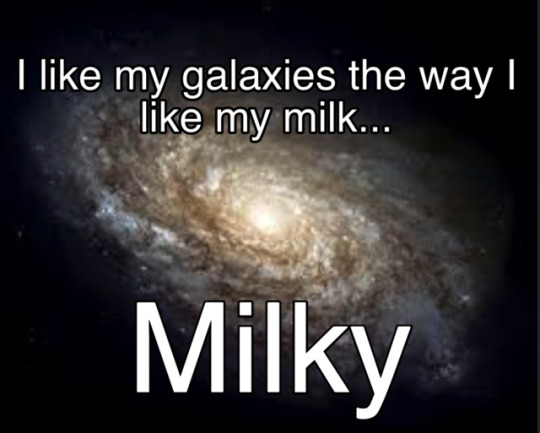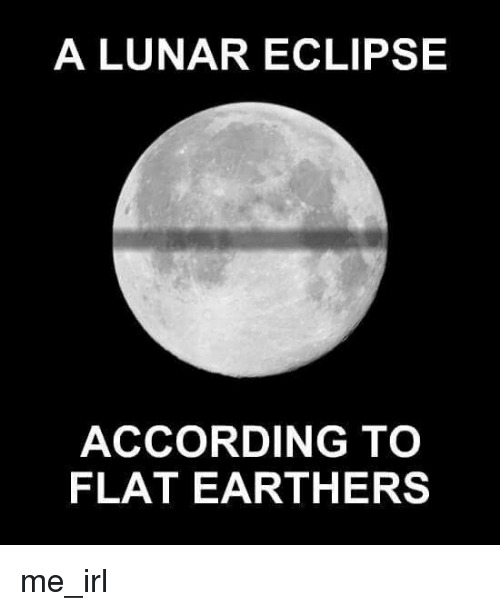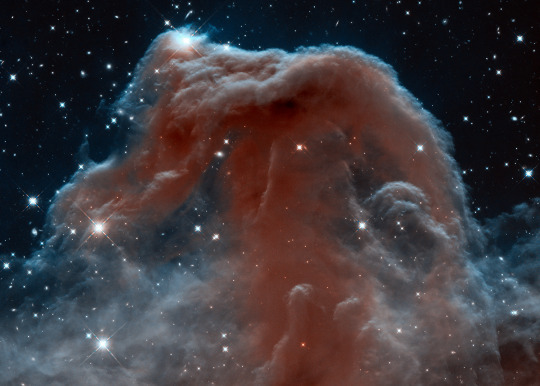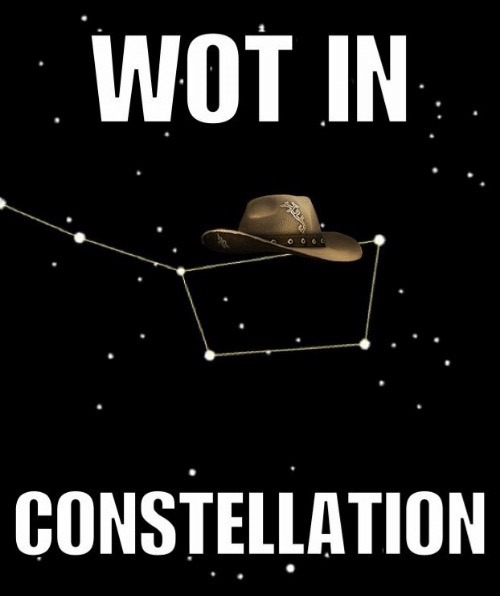Photo

When you didn’t know that Galaxy originally just meant the milky way
2 notes
·
View notes
Photo

Okay, but Uranus is actually the prettiest planet. No wonder its Latin meaning is “Heaven in the sky”
2 notes
·
View notes
Photo

2 notes
·
View notes
Photo

This particular nebula, taken right from the official NASA Tumblr page is called the “Horse-head Nebula”... pretty cool
2 notes
·
View notes
Text
Fun Fact
Did you know that the majority of Astronomy terms come from Latin Origin
0 notes
Photo

Only real astronomy nerds will get it
2 notes
·
View notes
Photo

Classic Astronomy-themed dad joke
3 notes
·
View notes
Text
Eclipse
Current Usage - “an obscuring of the light from one celestial body by the passage of another”
History - Derived from the Ancient Greek noun ἔκλειψις, meaning “the abandonment” or “the downfall” or “the darkening of a heavenly body”. The term originated from the Greek verb ἐκλείπω, which meant “to abandon”, “to darken” and “to cease to exist”. The word was first used around the 1570s and is still used in its original form today. In modern day, there are different forms of an Eclipse, including a Lunar and a Solar Eclipse.
1 note
·
View note
Text
Nebula
Current Usage - “a cloud of dust and gas in outer space”
History - Originally derived from the Latin language, “nebule” and meant “mist” or “cloud”. The words oldest English usage dates back to the 1600s. Where the term instead referred to a “cloudy spec or film on the eye which caused vision problems”, or “cataracts in the eye”. Famous Astronomer, Sir William Herschel was one of the first to use the term in its modern day usage. The word’s root, “nebh” comes from the Proto-Indo-European root meaning “cloud”
2 notes
·
View notes
Text
Uranus
Current Usage - “the planet which is seventh in order from the sun, directly after Saturn”
History - Uranus was the first planet to be discovered after ancient times when all other planets received their names. Named after the God of heaven, Husband of Gaia. The term originates from the Latin word “Uranus” and the Greek word “Ouranos” which literally means “heaven the sky”. After much debate over the name of the planet, it was coined “Uranus” and the term was not commonly used until around the 1850’s.
2 notes
·
View notes
Text
Solstice
Current Usage - “the two times in the year when the sun reaches its highest or lowest points in the sky at noon, also marked by the shortest and longest days”
History - Originating from the Mid-thirteenth century, the term came from the Old French word “Solstice” and from the Latin word “solstitium” meaning “the point at which the sun seems to stand still”. The term contains two Latin language morphemes; “sol” meaning sun and “-stitium” meaning stoppage. Each year there are two solstices, a Winter and a Summer Solstice, each marking the longest and shortest days of the year.
2 notes
·
View notes
Text
Asteroid
Current Usage - “a small rocky body orbiting the sun”
History - Originally coined from the Greek term asteroeidēs meaning “star-like” or “star-shaped” by the famous astronomer, Sir William Herschel. The term was derived from Ancient Greek word ἀστήρ or “astēr”, which meant “star-planet”. The word had become a commonly used term around the nineteenth century.
2 notes
·
View notes
Text
Constellation
Current Usage - “a group of stars forming a recognizable pattern, traditionally named after its apparent form or identified with a mythological figure”
History - Originating from the Late Latin term “cōnstellātiō” meaning “set of stars”. The term first came into English around the 14th century. The word was also used in ancient Greek but was referred to as ἄστρον. The constellations popular today all have connections to modern day Zodiac signs. Such as Scorpius relating to the star sign Scorpio.
1 note
·
View note
Photo

When you didn’t know that Galaxy originally just meant the milky way
2 notes
·
View notes
Text
Equinox
Current Usage - “the time or date at which the sun crosses the celestial equator, when day and night are of equal length”
History - Directly derived from the Medieval Latin word “aequinoctii” meaning “equality of night and day”. Descending from the Latin word “aequus” which meant “equal” and “nox” meaning “night. The term was first used around the fourteenth century. The term also comes from the Medieval Latin, Anglo-French word’s “equinocce” and “equinoxium”
1 note
·
View note

